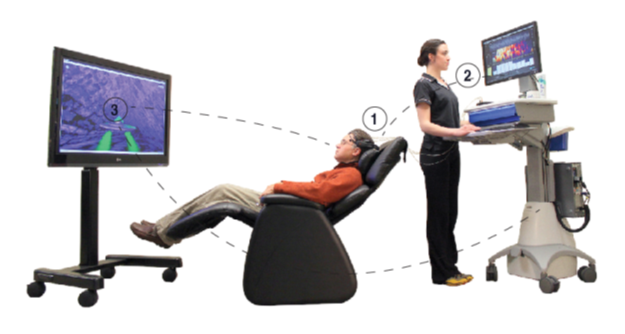Utilizing the Power of Bio-Feedback to Transform Persistent Pain Management and Improve Quality of Life
Utilizing the Power of Bio-Feedback to Transform Persistent Pain Management and Improve Quality of Life
Blog Article
Chronic discomfort is a syndrome that affects millions of individuals around the globe. It can be triggered by multiple elements, including injuries, illnesses, or even anxiety. For many individuals, controlling chronic pain can be a constant struggle that impacts their quality of life. Conventional treatments often include medications, physiotherapeutic therapy, and sometimes surgery. However, these approaches do not always offer the relief that individuals seek. Lately, biofeedback has surfaced as a promising option for managing chronic pain and enhancing overall health.
Biofeedback is a method that teaches patients how to control specific bodily functions by utilizing indicators from their own bodies. This approach involves employing sensors that monitor physiological responses such as heart rate, muscle tension, and skin temperature. By providing immediate feedback, patients can discover to recognize their body's reactions to pain and stress. This awareness allows them to formulate strategies to handle their pain more effectively. For instance, if a person observes that their muscle tension increases when they are in pain, they can utilize relaxation strategies to help reduce that tension.
One of the key benefits of biofeedback is that it empowers patients to take an active role in their pain management. Instead of relying solely on medications or treatments from healthcare providers, individuals can learn to comprehend and control their own physiology. This feeling of control can lead to enhanced confidence and a more optimistic outlook on life. Many patients indicate feeling more in control of their pain and less like sufferers of their syndrome. This change in perspective can substantially improve their standard of life.
Studies has demonstrated that biofeedback can be beneficial This Site in alleviating chronic pain indicators. Research suggest that patients who use biofeedback techniques often experience less pain and improved physical function. Additionally, biofeedback can help reduce anxiety and stress, which are common issues for those living with chronic pain. By addressing both the physical and emotional aspects of pain, biofeedback offers a comprehensive approach to pain management. This comprehensive method can lead to better outcomes for individuals, allowing them to participate more completely in their routine activities.
In summary, biofeedback is a significant tool for transforming chronic pain management. By teaching individuals to understand and control their physiological reactions, biofeedback enables individuals to take charge of their pain. This method not only helps alleviate pain but also improves overall standard of life. As more individuals seek alternatives to traditional pain management methods, biofeedback stands out as a potential solution. With ongoing investigation and recognition, biofeedback could turn into an integral part of chronic pain therapy, helping individuals lead more fulfilling, more satisfying lives.